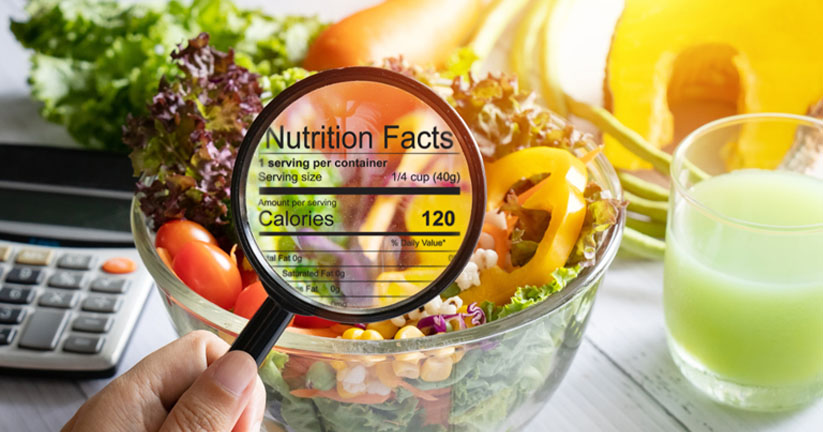
Author Nina Ebert, Biologist
Losing weight sustainably and maintaining the desired weight is very challenging for many people. Many still start with diets, training plans and strict nutrition strategies that promise quick results within a few weeks. However, science agrees: keeping the weight off after the diet rarely works. The strategy for success, on the other hand, is not that complicated: "Slow, steady, systematically" is the mantra. To lose weight effectively and keep the desired weight on a stable plateau, the approach is slow, steady and systematic. In this article we reveal not only why this is so, but also how you manage to persevere.
Why is slow weight loss important?
It is important for various reasons to gradually accustom the body and mind to a new weight in order to celebrate sustainable, healthy success.
Only gradually established routines remain
Slow weight loss allows you to develop healthy routines, that is, to get not only your body but also your mind used to the change. Healthy routines help to establish and maintain the weight loss process over time. Quick weight loss plans are usually based on extreme training programmes or greatly reduced calorie intake. The body cannot sustain this over the long term. Hormonal chaos between metabolism, hunger and satiety, over-acidified muscles, overexertion and tense nerves due to losing weight lead in most cases to an increase in weight to the initial weight, or even an excess of this when normal eating habits are resumed.
In contrast, a slow weight loss allows for the holistic integration of gradual changes in dietary routines, hormones, the Metabolism. For example, at some point Green tea and porridge with fresh berries on the breakfast table instead of a sandwich and latte macchiato on the hand, or a short yoga session replaces the Instagram practice in bed. The gradually changed daily routines remain programmed in for the long term because they are sustainably good for body and mind.
Metabolic adjustments are avoided
Losing weight in a short time usually sends the body into starvation mode. It wants to conserve the little energy it gets from food at all costs. It achieves this by adjusting the metabolism, i.e. by radically reducing it and trying to save energy. Fewer calories are burned because the body is on the back burner: slower fat burning, slower digestion and usually also a strong feeling of cold.
On the one hand, this makes it difficult to lose weight effectively, and on the other hand, the body easily puts on weight again once the extreme diet is over due to the slow metabolism.
Excursus: Energy gap & metabolic adjustments
According to a review published in 2017 in the journal Nutrients, metabolic adaptations occur during radical weight loss, which cause an increased feeling of hunger with simultaneously reduced energy intake. This creates what is known as an energy gap. More energy is desired than needed.
The increased feeling of hunger is associated with an increase in the hormone ghrelin and a reduction in the satiating hormones, the so-called anorexigenic hormones.
This low total energy consumption triggered by diet-induced weight loss arises from:
- A disproportionate decrease in the hormone leptin (normally signals satiety to the brain) and resting metabolic rate (RMR) than would be assumed due to the decrease in body mass.
- a reduced thermal effect of nutrition, i.e. lower heat generation through nutrition
- Increased energy saving during intensive work, characteristic of activities of daily living.
According to the authors, this adjustment of the metabolism can promote weight gain, partly because of the high feeling of hunger, and partly because of its now slowed performance, which does not burn as effectively when returning to normal eating habits after a diet.
Less hunger, more satiety - but how?
The scientific article lists some factors that contribute to the long-term maintenance of weight loss. The intake of proteins, fibres and carbohydrates with a low glycaemic load promotes satiety and reduces the feeling of hunger. These include fish, whole grain products, flaxseed and avoiding sugar as well as alcohol.
High activity rate
In people who reduce and maintain their weight in the long term, the authors also record a high level of physical activity. Sport and exercise promote energy consumption and thus the gradual adjustment of a suitable regulation of energy intake and consumption. Another benefit of exercise is also good bowel and digestive activity - healthy bowel movement is at least as important in losing weight as reducing calories themselves.
Continuously losing a maximum of 1 kg per week helps to change the metabolism step by step and thus maintain new eating habits and activity levels with a normal metabolism and hormone balance.
Muscle tissue remains intact
Rapid weight loss usually means a loss of muscle mass along with the loss of fat tissue. This can also cause the metabolism to slow down, preventing weight from being reduced and maintained in the long term. Losing weight slowly and gradually allows muscle mass to be maintained while fat is burned and reduced. Muscle tissue is important for an active metabolism and keeps weight down in the long term.
A balanced nutrient budget instead of severe deficits
Fast diets can lead to the body not being supplied with all the nutrients it needs. Nutrient and vitamin deficiencies can have health consequences. When losing weight over a long period of time, on the other hand, the body has plenty of time to be supplied with important nutrients. In order to support all the processes in the liver, intestines, skin and many more in a healthy diet when losing weight, targeted nutritional supplementation makes sense. The supply of important minerals, trace elements, Omega-3 fatty acids or Antioxidants from green tea extract provide holistic support for a balanced diet when losing weight.
Keeping at it is important - and how?
Losing weight slowly is a goal-oriented and permanently successful way to achieve your desired weight. Now the question is, how do I stay on track to achieve this goal?
Set realistic goals

Making progress conscious
Measuring small successes brings motivation and a good mood when losing weight. What exactly is measured can be very individual: weighing yourself, writing a food diary, using a fitness app or measuring your workout are common and very helpful tools. Monitoring your weight loss allows you to see your progress, be happy about it or make adjustments to your plan if necessary.
Focus on nutrition
Diet and nutrients play a key role in losing weight. A focus on balanced and nutritious meals is the most important thing in losing weight. Once awareness of the right ingredients and healthy moderation has been raised, nothing stands in the way of achieving a permanent desired weight. It is best to permanently say goodbye to dairy products, sugar, alcohol, animal fats and pastries such as fried foods that are high in trans fatty acids. Recipes with lots of vegetables, fruit, protein from fish or plants, nuts, few carbohydrates from whole grains and vegetable oils should be on the menu. We have included one of our favourite recipes for a ketogenic, refreshing and filling matcha bowl for breakfast at the end of the article.

Vegetables such as cabbage, broccoli, fresh herbs and algae not only provide vitamins and trace elements, but also countless secondary plant compounds, bitter substances and antioxidants. In nature, antioxidants take on important tasks in metabolism, energy balance and cell protection, and according to increasing research results, they also have a whole range of positive effects in the human organism.

Green tea is particularly rich in active plant substancesIts effect has been highly valued for centuries in ancient traditions and modern Asian societies. Green tea polyphenols, especially EGCG (epigallocatechin gallate), are some of nature's most powerful antioxidants. natural green tea extracts can be taken uncomplicatedly and effectively.
Integrate physical activity into everyday life
Training and exercise are just as important as a conscious diet. No extreme sports are called for, but an activity that can best be integrated into everyday life for 30 minutes a day. Moderate sport or exercise such as swimming, walking, cycling or strength training burns calories and maintains muscle tissue, keeps the joints moving and best of all: it puts you in a good mood.
Sufficient sleep & rest

Lose weight while sleeping? Yes. Cells regenerate at night, DNA repair errors are repaired, hormones and metabolism are brought back into balance so that they can perform again the following day. A healthy sleep rhythm of 7 to 8 hours of sleep per night is an important component in keeping up the weight loss programme. In addition, breathing exercises, yoga and meditation sessions are important to give the body breathing space and time to regenerate.
In summary, based on the scientific research, slow and steady weight loss is the key to sustainable weight balance. Losing weight step by step with a maximum weight reduction of 1 kg per week allows the body to develop sustainable healthy routines, keeps the metabolism active and maintains a healthy balance of hormonal hunger and satiety regulation. It also maintains muscle mass and avoids deficiencies in important nutrients that can lead to severe deficiencies and dysfunction. Losing weight slowly has another advantage: it is much more fun. We don't have to put ourselves under pressure by extremely strict renunciation, but set ourselves small goals, look forward to trying out new recipes and feel better and better. Our motto is: If you enjoy health, you are motivated and motivation leads to the greatest successes!
Matcha Smoothie Bowl
1 teaspoon matcha green tea powder
1 heaped tablespoon vegan protein powder
240 ml coconut yoghurt or Greek yoghurt
Fresh herbs and spices such as basil and cinnamon as needed, and stevia for natural sweetness.
Puree everything in a blender and pour into a bowl.
For the topping: 1 tbsp vegan omega-3 oil (tastes deliciously of lemon), chia seeds, linseed, goji berries, coconut flakes, cocoa nibs or almonds.
Enjoy your meal!
Sources:
https://www.ncbi.nlm.nih.gov/pmc/articles/PMC5452198/
https://www.ncbi.nlm.nih.gov/pmc/articles/PMC3302369/
https://pubmed.ncbi.nlm.nih.gov/11375440/




Leave a Reply